Life
Sign up for our newsletter
We summarize the week's scientific breakthroughs every Thursday.
-
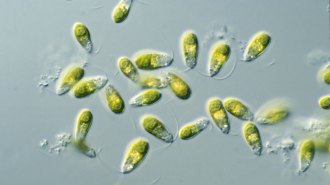 Life
LifeA 3-D printed, plastic beaker could help algae grow on Mars
Algae grown under Mars-like conditions could make bioplastic building materials for structures to harbor life in space.
-
 Neuroscience
NeurosciencePopular weight-loss drugs may ease migraines too
A GLP-1 drug led to fewer days with headaches, a small pilot study of migraine sufferers shows. It may work by lowering pressure inside the head.
-
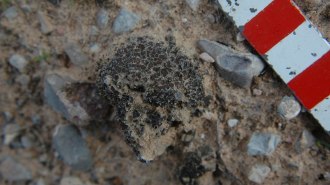 Life
LifeA barrage of radiation couldn’t kill this hardy life-form
A type of lichen was able to survive extreme UV radiation in the lab, suggesting that ozone protection might not be required for life on exoplanets.
-
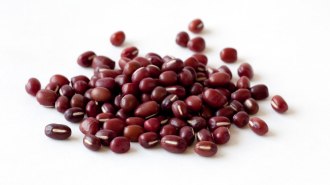 Genetics
GeneticsGenetics reveal the origin story of East Asia’s favorite sweet bean
The origin of red beans — also called adzuki — has been murky. A new study says Japan is where it all started.
By Celina Zhao -
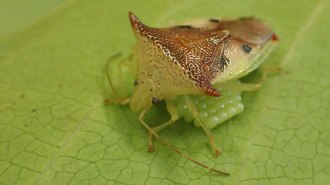 Animals
AnimalsThis bug’s all-in helicopter parenting reshaped its eggs
An egg-shape trend found among birds shows up in miniature with very protective bug parents. Elongated eggs fit more compactly under mom.
By Susan Milius -
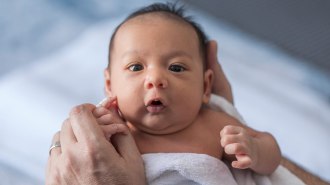 Health & Medicine
Health & MedicineMany U.S. babies may lack gut bacteria that train their immune systems
Too little Bifidobacterium, used to digest breast milk, in babies' gut microbiomes can increase their risk of developing allergies and asthma.
-
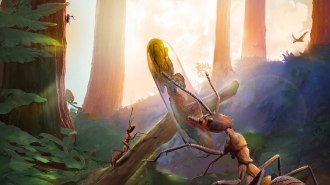 Paleontology
PaleontologyZombifying fungi have been infecting insects for 99 million years
Two bits of amber discovered in a lab basement hold ancient evidence of a fungi famous for controlling the minds of its victims.
-
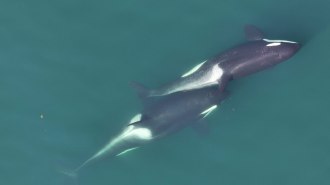 Animals
AnimalsKiller whales may use kelp brushes to slough off rough skin
The whales use quick body movements to tear pieces of bull kelp for use as tools, perhaps the first known toolmaking by a marine mammal.
-
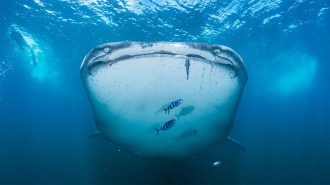 Animals
Animals50 years after ‘Jaws,’ sharks face their own terror
Humans have driven sharks and their cousins to the brink of extinction. The health of the entire ocean is at stake.
-
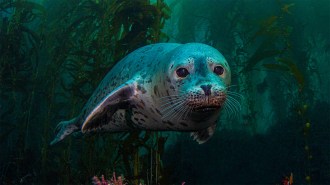 Animals
AnimalsU.S. seal populations have rebounded — and so have their conflicts with humans
Alix Morris’s new book, A Year with the Seals, explores humans’ complicated relationship with these controversial marine mammals.
-
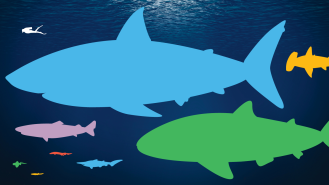 Animals
AnimalsCompare shark sizes on our infographic
As Jaws celebrates its 50th anniversary, Science News explores the vast range of shark sizes, from megaladon to the dwarf lanternshark.
-
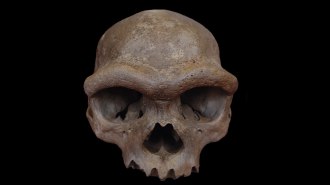 Anthropology
Anthropology‘Dragon Man’ skull may be the first from an enigmatic human cousin
Ancient proteins and DNA may peg a 146,000-year-old Chinese skull as the most complete fossil to date from Denisovans, a puzzling line of Asian hominids.
By Bruce Bower